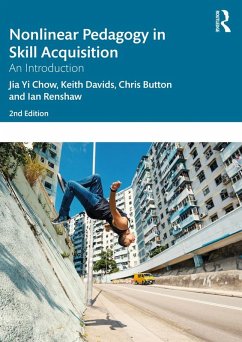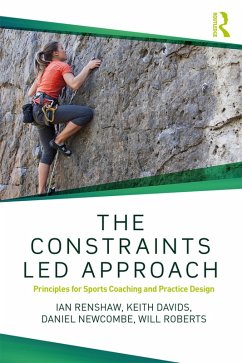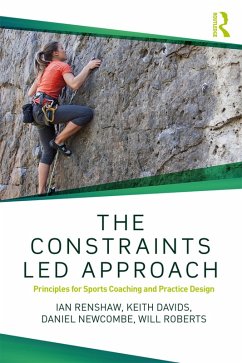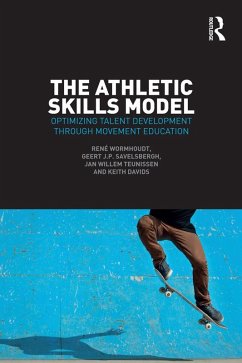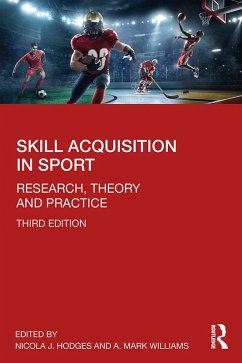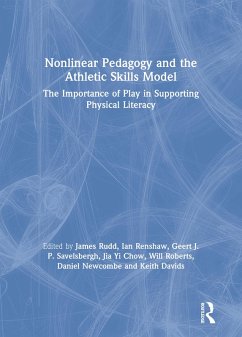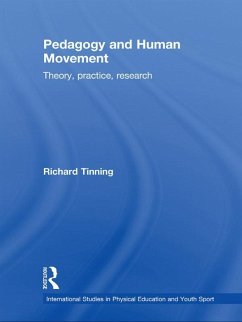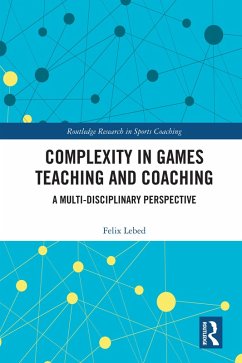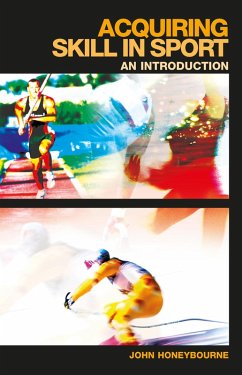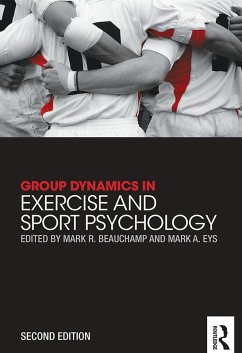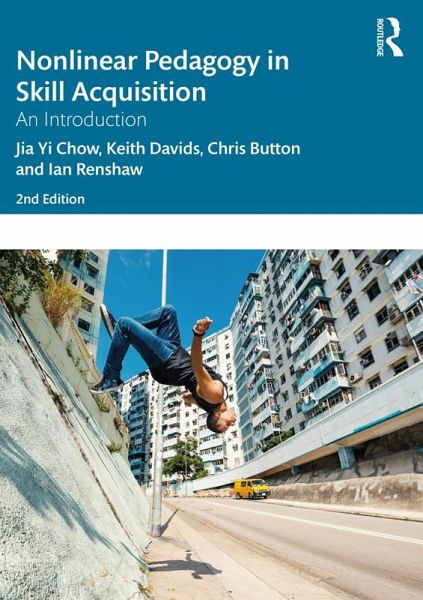
Nonlinear Pedagogy in Skill Acquisition (eBook, ePUB)
An Introduction
Versandkostenfrei!
Sofort per Download lieferbar
42,95 €
inkl. MwSt.
Weitere Ausgaben:

PAYBACK Punkte
21 °P sammeln!
Nonlinear Pedagogy is a powerful paradigm for understanding human movement and for designing effective teaching, coaching and training programmes in sport, exercise and physical education (PE). It addresses the inherent complexity in learning movement skills, viewing the learner, the learning environment and the teacher or coach as a complex interacting system. The constraints of individual practice tasks provide the platform for functional movement behaviours to emerge during practice and performance.The second edition includes new materials, of practical, theoretical and empirical relevance,...
Nonlinear Pedagogy is a powerful paradigm for understanding human movement and for designing effective teaching, coaching and training programmes in sport, exercise and physical education (PE). It addresses the inherent complexity in learning movement skills, viewing the learner, the learning environment and the teacher or coach as a complex interacting system. The constraints of individual practice tasks provide the platform for functional movement behaviours to emerge during practice and performance.
The second edition includes new materials, of practical, theoretical and empirical relevance, to enhance understanding of how to implement a Nonlinear Pedagogy to support learning in sport, PE and physical activity. There is updated, in-depth discussion on the various pedagogical principles that support Nonlinear Pedagogy and how these principles are applicable in learning designs in sports and physical education. There is further emphasis on examining how transfer of learning is implicated in practice, highlighting its relevance on skill adaptation and talent development.
The first part of the book updates the general theoretical framework to explain processes of skill acquisition and motor learning. This edition draws clearer links between skill acquisition, expertise and talent development, focusing on how specificity and generality of transfer have a role to play in the development of learners.
The book defines Nonlinear Pedagogy and outlines its key principles of practice. It offers a thorough and critical appraisal of the functional use of instructional constraints and practice design. It discusses methods for creating challenging and supportive individualised learning environments at developmental, sub-elite and elite levels of performance. The second part focuses on the application of Nonlinear Pedagogy in sports and PE. There is a greater emphasis on helping applied scientists and practitioners understand the impact of Nonlinear Pedagogy on transfer of learning. Every chapter is updated to provide relevant contemporary cases and examples from sport and exercise contexts, providing guidance on practice activities and lessons. Nonlinear Pedagogy in Skill Acquisition is an essential companion for any degree-level course in skill acquisition, motor learning, sport science, sport pedagogy, sports coaching practice, or pedagogy or curriculum design in physical education.
The second edition includes new materials, of practical, theoretical and empirical relevance, to enhance understanding of how to implement a Nonlinear Pedagogy to support learning in sport, PE and physical activity. There is updated, in-depth discussion on the various pedagogical principles that support Nonlinear Pedagogy and how these principles are applicable in learning designs in sports and physical education. There is further emphasis on examining how transfer of learning is implicated in practice, highlighting its relevance on skill adaptation and talent development.
The first part of the book updates the general theoretical framework to explain processes of skill acquisition and motor learning. This edition draws clearer links between skill acquisition, expertise and talent development, focusing on how specificity and generality of transfer have a role to play in the development of learners.
The book defines Nonlinear Pedagogy and outlines its key principles of practice. It offers a thorough and critical appraisal of the functional use of instructional constraints and practice design. It discusses methods for creating challenging and supportive individualised learning environments at developmental, sub-elite and elite levels of performance. The second part focuses on the application of Nonlinear Pedagogy in sports and PE. There is a greater emphasis on helping applied scientists and practitioners understand the impact of Nonlinear Pedagogy on transfer of learning. Every chapter is updated to provide relevant contemporary cases and examples from sport and exercise contexts, providing guidance on practice activities and lessons. Nonlinear Pedagogy in Skill Acquisition is an essential companion for any degree-level course in skill acquisition, motor learning, sport science, sport pedagogy, sports coaching practice, or pedagogy or curriculum design in physical education.
Dieser Download kann aus rechtlichen Gründen nur mit Rechnungsadresse in A, B, BG, CY, CZ, D, DK, EW, E, FIN, F, GR, HR, H, IRL, I, LT, L, LR, M, NL, PL, P, R, S, SLO, SK ausgeliefert werden.




